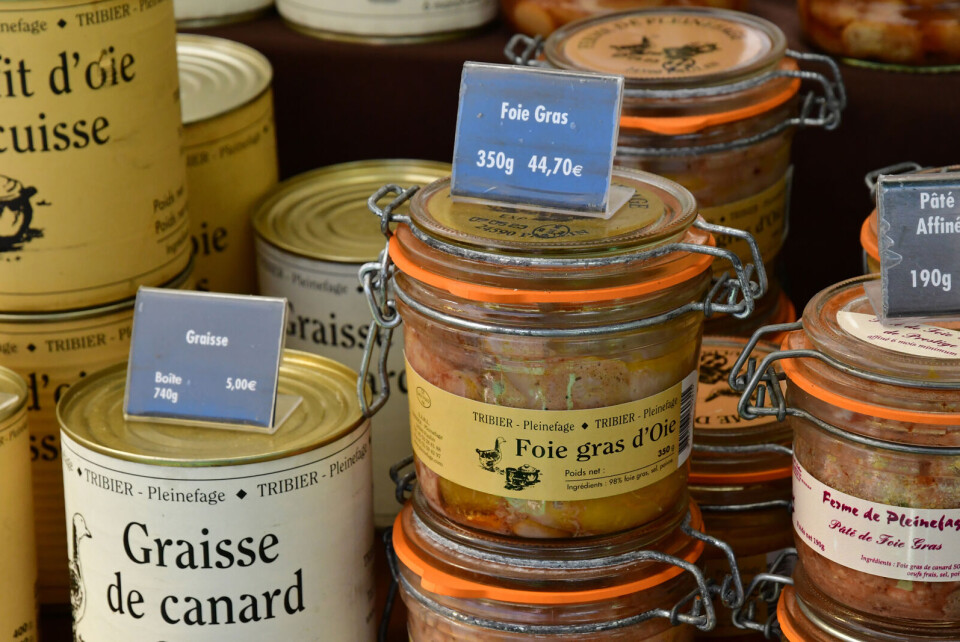-
Drinking tap water restricted for children in south-west France communes
Haute Garonne prefecture says the measure is precautionary and due to high chlorate levels
-
‘Trustworthy’ media label idea from Macron causes political storm in France
Comments prompted fierce political backlash from right but government insists it was taken out of context
-
French prime minister faces fresh problems to pass a 2026 budget
MPs continue to argue over budget but alternative measures could possibly see government toppled
French ambassador joins fight to stop UK foie gras import ban
British farmers have been forbidden from producing foie gras under animal welfare legislation since 2006. However, the UK continues to import the product

The French ambassador has teamed up with foie gras trade bodies to fight a proposed UK import ban.
Restrictions on foie gras sales were set out as an objective in the Queen’s Speech in May after years of campaigning by animal rights groups, who say the force-feeding of ducks and geese is barbaric.
No parliamentary action has yet been taken, but the president of the foie gras trade body, Cifog, said the industry has received high-profile support to ward off any future attempts to limit sales.
Eric Dumas told The Connexion: “We are working through the French ambassador and trade representatives to try to lobby the government so the measure is not introduced.
“Foie gras is being unfairly picked on and we invite [UK Prime Minister] Boris Johnson and his advisers to come and visit us to see for themselves what happens.”
He said the industry, which was hit hard by the closure of restaurants during lockdowns last year and outbreaks of bird flu, wanted to send a message: “We are back, producing delicious food.”
The controversy in foie gras production centres on a practice called gavage, where long tubes are pushed down the birds’ throats to pump food into the digestive system.
It causes the liver to swell to several times its natural size.
In a letter from a cross-party group of British MPs, written to ministers in March and urging a total ban of foie gras sales in the UK, gavage was described as a “torturous treatment”.
Producers argue that when the tube is inserted correctly, no harm is done and the birds do not suffer.
British farmers have been forbidden from producing foie gras under animal welfare legislation since 2006. However, the UK continues to import the product.
Export sales by one large French foie gras producer to the UK have risen fivefold to €50,000 a year since the 2016 EU referendum.
Gilles LeMoine, sales director of La Quercynoise cooperative, based at Gramat in the Lot, said: “We do not know why exactly but speculate that it is because people who used to stop at our shop in France and buy products to take back home are no longer able to do so and thus they now buy in the UK.”
While Brexit has had a negative impact on many other foodstuffs, Mr LeMoine said his company was coping well.
“There is more paperwork for sure, but we are used to doing the paperwork for our other main export markets in the Far East.
“The UK has never been a major market for us – it is very difficult to get shops to stock foie gras.”
Overall, exports account for 10% of the cooperative’s sales figures of €80million per year.
Related stories
Paris start-up develops cruelty-free, lab-grown foie gras
French foie gras farmers invite Johnson to visit and not limit sales
























